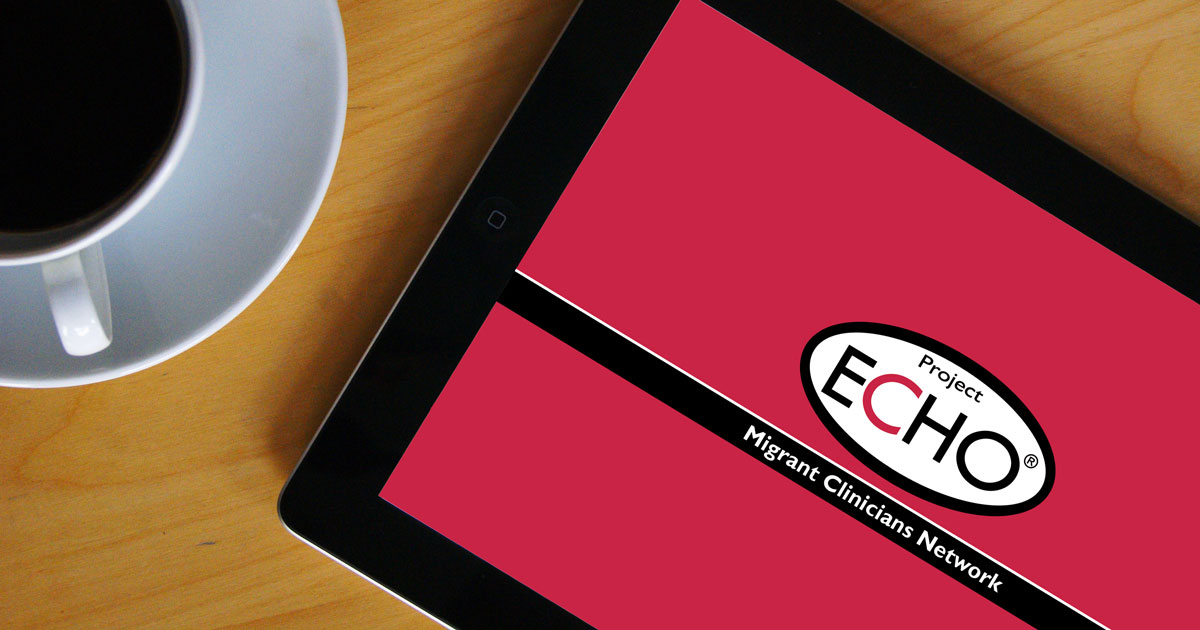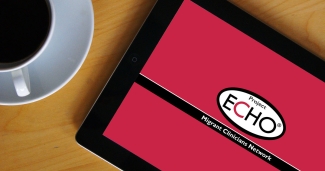Successful Programs of Self-management, Control and Prevention of Diabetes

In the fifth session of our Project ECHO on diabetes, MCN facilitated talks with experts on self-management for diabetes. This ECHO series aims to share tools and tactics, help community health workers at health centers learn about the most recent research, and make a space for networking, to support health centers in their efforts to bring down HbA1c numbers around the country. This series is supported by the Health Resources and Services Administration (HRSA).
Engagement with leading experts is the cornerstone of our Project ECHO. During the session, one participant asked why the highlighted programs focused on active skills for patients with diabetes, instead of information. Virginia González, MPH from the Self-Management Resource Center, LLC, responded: “Skills and processes are more important than the content. An evidence-based self-management program will increase self confidence, build skills for problem solving and handling of their condition, and enable work with the health team to control diabetes.” Virginia is a co-developer of the Chronic Disease Self-Management Program, a well-known evidence-based Diabetes Self-Management Program for chronic pain, HIV, and cancer developed by the Patient Education and Research Center at Stanford University. She is also co-author of a number of books including “Living a Healthy Life with Chronic Conditions.” Virginia has been instrumental in the development, implementation, and evaluation of Spanish personal management programs in arthritis, chronic diseases, and diabetes.
Case studies showing the utility of self-management programs were explored in depth. Leonardo Perez Rivera, MPHE, Coordinator of the Program for the Prevention and Control of Diabetes and the Program for the Automation of Chronic Diseases for the Department of Health in Puerto Rico, presented how Puerto Rico has implemented the Stanford program. He also talked about the Diabetes Empowerment Education Program (DEEP), developed by the University of Illinois at Chicago. He provided good examples and even pictures of how successful the programs have been and how they focus on the community leaders as the main force to carry the program across Puerto Rico.
Following Leonardo was Onaney Hernandez, Project Coordinator at MPH Salud. She provides training and technical assistance for CHWs and program managers working at Migrant and Community Health Centers. Her presentation of the “El Camino a la Buena Salud” and “Salud y Vida” programs included a video exemplifying how the programs work. After just three months of the Salud y Vida program, HbA1c levels were already in decline.
As with all of our ECHO sessions, participants were highly involved, engaging directly with the experts. Participants were particularly interested in how these self-management programs could be applied to children and adolescents, and lively discussion followed the presentations.
Additional Resources:
- Self-Management Resource Center: www.selfmanagementresource.com/resources
- Diabetes Self-Management Education and Training: http://www.chronicdisease.org/mpage/domain4_selfm_diabet
Like what you see? Amplify our collective voice with a contribution.
Got some good news to share? Contact us on our social media pages above.
Return to the main blog page or sign up for blog updates here.
- Log in to post comments
